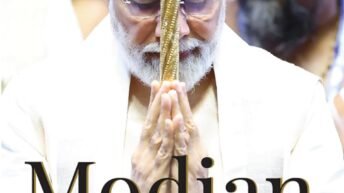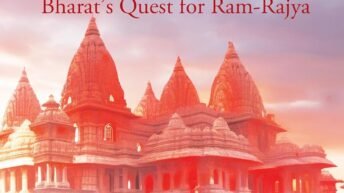|
Listen to article
Getting your Trinity Audio player ready...
|

Babasaheb Bhimrao Ambedkar, one of the principal architects of modern India, remains the most revered icon in the country’s social and political life today. He is that rare political figure whose stature has only grown since his death more than six decades ago. Ambedkar carried several identities in his lifetime; he was a preeminent jurist, a brilliant lawyer, an erudite academician, an incisive thinker, a remarkable institution builder, a prolific author, an accomplished politician, a committed reformist, but his most important identity was that of the emancipator of the oppressed classes. It is an irony that despite so many facets of his personality, there has been a general proclivity to pigeonhole him merely as a Dalit leader. It is a grave injustice to the man and his profound ideas that continue to be the mainstay of our modern democratic republic.
Several books have been written on the life of Dr Ambedkar, the man who was voted as the ‘Greatest Indian’ in a poll conducted by History TV18 and CNN IBN in 2012. Shashi Throor’s book ‘Ambedkar: A Life’ is a welcome addition to the existing works on Ambedkar. With this short biography, Tharoor, the author of around two dozen books, gives the reader a cursory insight into the life of Ambedkar. As the book dwells upon various aspects of his life one thing becomes clear that Ambedkar was essentially a man with a pragmatic worldview who realised, at a very early stage of his life, that only a good education could emancipate him and his people from the shackles of caste. Shashi Tharoor’s book is a crisp account of Ambedkar’s life and his ideas. The book is divided into two parts; the first part sheds light on Babasaheb’s life and his various struggles and accomplishments, while the second part talks about the legacy of the man.
One question that constantly struck me while reading the book was that what explains the ever-growing popularity of the man who in his lifetime faced so much of disdain. Ambedkar had clear disagreements with Gandhi, something he never made a secret of, he was highly critical of the Congress leadership and its methodologies, he virtually despised communists about whom he famously said, “I don’t want my people to fall under the sway of communists.” Hindu traditionalists always saw him as a constant source of nuisance, while his unsavoury views on Islam, the religion he called “a closed corporation”, continue to be the subject of intense debate even today. Despite so many ideological disagreements, some bordering on bitterness, with principal stakeholders of the time, Ambedkar today, in author’s words, “has entered the rare pantheon of unchallengeable…nearly seven decades after his death, he keeps on growing.”
This growing supremacy of Ambedkar in our national discourse has very much to do with the ideas he stood for in his lifetime and their enduring appeal in our contemporary socio-political discourse. It should not be unfair to say that the challenges that Ambedkar faced in his lifetime pervade our society even today, albeit to a much lesser degree. His tireless struggle against untouchability and caste discrimination has a lingering influence on a society that Ambedkar believed was deeply “Brahminical” in nature. “Jai Bhim”, a slogan coined by by Babu Hardas in 1935, is not mere a political slogan today but it has become the most compelling manifestation of centuries-old struggle of the oppressed classes, their resilience and their collective will to fight the inequity and injustice that exist in the society.
The Constitution of India has distinctive imprints of Ambedkar’s vision of an egalitarian society. One has to simply consider some of the constitutional provisions, such as, Article 14, equality before the law; Article 15, discriminate against any citizen on grounds only of religion, race, caste, sex, place of birth or any of them; Article 16(4), for reservation for Backward Classes in cases of inadequate representation in public employment; and Article 17, prohibition of untouchability, to understand how Ambedkar’s own experiences and struggle against the most grotesque form of social discrimination found their voices in our constitution. Interestingly, several members of the constituent assembly called Ambedkar “the modern-day Manu” for his remarkable work as the president of the constitution drafting committee.
While Ambedkar had to face discrimination and humiliation at every step of his life, he also came across some benevolent souls who generously helped him move up the ladder of academic and professional success. The book talks of a number of people who made sure that Ambedkar’s caste doesn’t come in the way of his dream. For instance, it was his school teacher Krishna Keshav Ambedkar who gave Bhiva Sakpal (Bhim had been enrolled in school under the name of Bhiva Sakpal) a new name- Bhimrao Ambedkar. Little did he know that one day this name would be revered across the country as the tallest icon of oppressed classes. The other kind-hearted person who finds mention in the book is Krushnaji Arjun Keluskar, who would share his books with Bhim and introduced him to the teachings of Gautam Buddha. In 1907, Ambedkar became the first untouchable to matriculate and get a Bachelor of Arts. At this point, Keluskar introduced him to the Maharaja of Baroda, Sir Sayajirao Gaekwad, who, considering his brilliance and boundless zeal for learning, awarded him a scholarship of Rs. 25 a month for three years, 1913 to 1916. Then, it was the Maharaja of Kolhapur, Shahu Maharaj who helped Ambedkar start his fortnightly newspaper ‘Mook Nayak’, a publication that Ambedkar used as the voice of downtrodden classes. Naval Bhathena was another gentleman who found a very special place in Ambedkar’s life as he generously supported Ambedkar with money during his formative years. These people who appeared in Ambedkar’s life at different points in time not only kept his faith in humanity alive but also gave him the motivation to pursue his dream.
Ambedkar’s worldview of the Indian society was largely based on his own life experiences, it was shaped by his endless struggle against the obnoxious caste system that prevailed in the society. It should, therefore, not come as a surprise that he saw upper caste Hindu leaders with a great sense of suspicion. His disagreements with Mahatma Gandhi, whom he never called Mahatma in his life, on the issue of caste is highly instructive. While Gandhi was an unabashed advocate of caste system, Ambedkar wanted nothing less than the annihilation of the system that perpetuated social discrimination and untouchability. While Ambedkar saw in Gandhi “the most determined enemy of untouchables”, Gandhi described Ambedkar as “the most uncompromising exponent of attacks on Hinduism”. The differences between the two most influential leaders of the time were so deep that they never really developed a warm personal or working relationship. Tharoor writes in his book, “he (Ambedkar) did not publicly utter a word on the monumental national tragedy of Mahatma’s killing, nor did he issue any statement of condolence. He joined the funeral procession for a while and retired to his study. But he did not write anything on the subject.”
Like every great man, Ambedkar also had his own share of flaws. The author talks in detail about the areas on which Ambedkar can be faulted; for instance, Ambedkar’s unsavoury thoughts on Adivasis- India’s aboriginals, his deeply prejudiced views about ‘Hindu Civilisation’, his bitter disagreements with Gandhi and the “ungraciousness of his manner to express them” are some of the areas where, the author believes, Ambedkar cannot escape a legitimate criticism.
Shashi Tharoor’s book should be an interesting read for anybody who wants to know Babasaheb Bhimrao Ambedkar beyond his identity as the tallest leader of deprived classes. The book is a judicious review of the life and legacy of the man who is growing taller with each passing year since his death on December 6, 1956.






Add comment